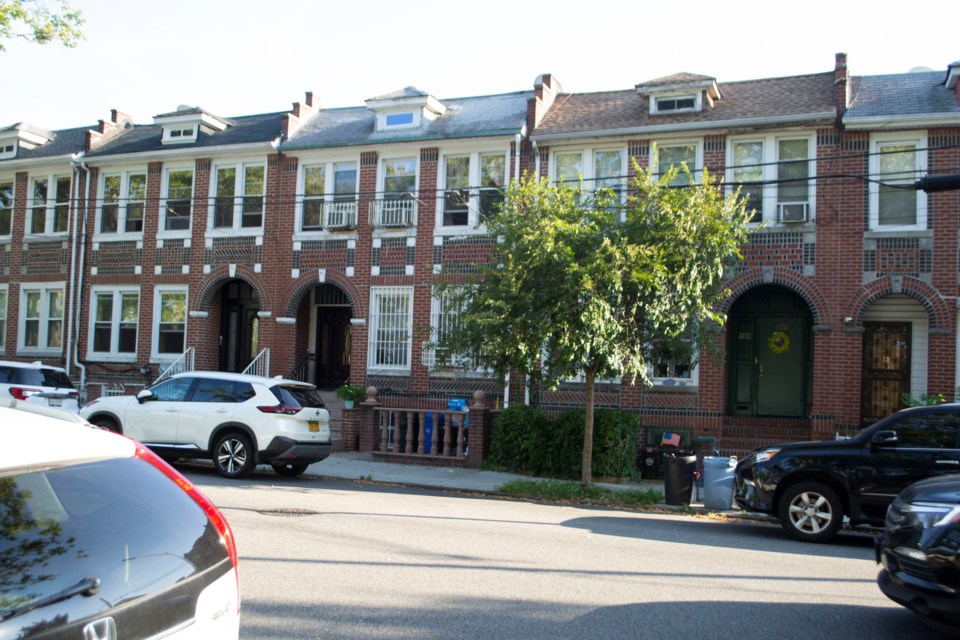New York City will hold the first tax lien sale in almost four years on June 3, where property owners’ debt accrued from back taxes and unpaid water bills is sold to a buyer. Almost 11,000 Brooklyn properties are on that list.
The city’s lien sale is very controversial, as housing and legal advocates say it disproportionately affects minority and working-class communities.
At a lien sale, the city sells property tax and other municipal debts in bulk to an investor-backed trust. The trust tacks on high interest rates and fees, pushing financially-strapped property owners into further distress. When a property owner fails to meet this ever more onerous financial burden, the trust can foreclose on the property, divesting the owner of their equity and transferring the property to the highest bidder, frequently a real estate developer and speculator, according to Abolish the Tax Lien Coalition, a group of advocates looking to stop the lien sale.
Many organizations, including the nonprofit Brooklyn Level Up, which has been hosting a clinic every Saturday at the Clarendon Library, have been helping homeowners complete forms to get them off the lien sale list.
“Sometimes it’s not enough to just tell them, just go to this website and you can get a plan together,” said Allyson Martinez, Brooklyn Level Up’s executive director.
Borrowing From Peter to Pay Paul
Margaux Jones, the owner of a three-family home near Downtown Brooklyn, said an incorrect water meter reading she discovered in 2024 would likely have placed her on the lien sale list, had she not identified the issue in time.
Over the course of 2024, Jones’s water bill increased by $100 each quarter. Puzzled, she reached out to the New York City Department of Environmental Protection, which eventually sent someone to inspect the water meter.
“I had no idea that there was a wire to wire disconnection and that it was broken since 2021,” said Jones, who discovered the problem once DEP visited her Fulton Street home. “They never sent any notification to say ‘Your meter is broken, this is an estimated bill.’”
Jones said a DEP representative advised her to pay a $448 bill received in December 2024, after she discovered the broken meter. However, the representative warned Jones that she might receive an additional bill to make up the difference in what was owed since her meter was broken.
“She said I might have to pay more or less when the money is recouped from 2021 to present – and that’s when I received a bill for $9,018.94,” she said.
Jones said the bill was due in March, but she is contesting it. In the meantime, DEP offered Jones a payment plan to help offset the costs.
“During the payment plan, interest is occurring – so I’ll never catch up to this,” said Jones. “I had to borrow from Peter to pay Paul. They [DEP] don’t want to take the blame for this.”
Solutions
Some New York City Council Members want to create safeguards to prevent people from even making the tax lien sale list. In January, Council Member Sandy Nurse introduced three pieces of legislation that would, among other things, be notified by the city about their debt sooner.
“You have a lot of older housing stock, a lot of senior homeowners who are honestly in some cases, just not aware of what’s available to them or they’re not on top of these things overtime,” said Martinez, adding that seniors need extra support from organizations and family members to keep them abreast of any financial needs related to their properties.
Homeowners can check the New York City Department of Finance website to see if their properties are on the lien list. If you find yourself on the list, there are several options, including paying the minimum amount listed on the mailed warning notice, signing up for a payment plan and/or securing a property tax exemption.
“In my experience, it’s not all that easy,” said Rachel Geballe, a project attorney at Legal Services NYC Brooklyn. “For many people, they can’t afford that payment plan; they’re immediately turned away because of some issue on title – because they’re an heir, or because their property was stolen and is now an LLC.”
With the sale just days away, Geballe said property owners desperate to get their names removed from the list should make a call to Legal Services or 311, where they can rely on an advocate to navigate the issue for them. The DOF also has Business Center offices manned with staff, and many city council members have been hosting clinics.
“Just because you’ve been denied [for relief] doesn’t mean it was right for them to deny you,” said Geballe. “It’s good to talk with an advocate who is familiar with the rules to see whether there’s alternative relief or whether the reason they denied you was an error.”
Homeowners must pursue an option by May 19, 2025, or one day ahead of the sale.




